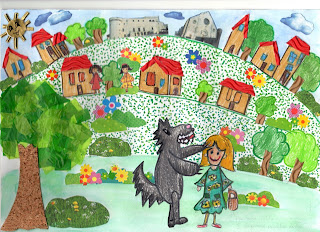ITALY: immigrants and the right to education
Italy is one of the most important destination countries for migrants to
Europe: Around 5,000,000 regular migrants live in the country (about 8 per cent
of the total population) and the annual growth rate of migrant presence is –
together with Spain – the highest in the European Union.
The right to education is guaranteed to foreigners
regularly residing in Italy, under the same conditions of Italian citizens. In
particular, minors are guaranteed the right (and obligation) to study: all
minor foreign citizens must comply with a “compulsory education period”
(primary and secondary school), even if they do
not have a residence permit (school enrolment
does not constitute a requirement to regularize neither minors, nor their
parents).
Law 40 has established the
compulsory education for all foreign children, has foreseen initiatives for the
learning of the Italian language and has promoted the protection of the
language and culture of origin. “School community receives linguistic and
cultural differences as a value to establish as a basis for reciprocal respect,
exchange among cultures and tolerance; in order to reach this goal, it promotes
and encourages initiatives aimed at reception, protection of culture and
language of origin and implementation of common intercultural activities” (Art.
36, comma 3).
Italian schools impose a 30 per cent limit on
foreigners in classes in an attempt to help integration.
Under Italian law, education is compulsory for minors until they are 15: minors
are automatically enrolled in the class which corresponds to their age. The
teaching body can anyway decide to enroll minors in an immediately upper or
lower class, by taking into consideration minors’ preparation, the studies they
carried out, and their educational qualification.
In Italy children must compulsory attend primary and
secondary school. After the fifth year of primary school and after the third
year of secondary school children have to take an exam (primary school diploma
and secondary school diploma respectively). The secondary school diploma is
necessary both to enroll to high school, and to take part into state
competitive examinations, it is additionally required by almost all employers.
High school is not compulsory. Attending high school
allows students to take their school learning examination, thus obtaining a
school-learning certificate (called: “diploma di maturità”) that allows them to
be admitted to university.
Support for school integration
Teachers and students of infant school, nursery
school, primary school, secondary school and high school can be supported in
several different ways in order to reach school integration: social workers of
various municipalities – on the ground of their acquaintance as to young people
– intervene and support students that have some difficulties at setting in at
school.
Some voluntary workers’ associations – in accordance
with teachers – activities aimed at helping in their class, (there are for
example groups of voluntary workers that help children to do their home work
after school).
Adult’s Education
The Permanent Local Centers (Centri Territoriali
Permanenti) are in charge of Adults’ Education. People over 15 years of age can
avail themselves of adult’s education services. The Permanent Local Centers
organize several free public courses:
• to get
the primary school certificate;
• for
foreign people that want to learn Italian, (various levels); within the
district it is also possible to attend the preparatory class aimed at taking
the Italian language exam with the University for foreign people (Italian
language Certificate as a Foreign Language – “Certificazione di Italiano come
lingua Straniera C.I.L.S.);
• for
adults’ education (foreign languages, multimedia education, pre-professional
classes, etc.).
Vocational Training
Vocational training is addressed to people over 15
years of age.
Vocational training courses train people to carry out
qualified jobs within industries or other working places.
“Upper level” Vocational Training is addressed to
young people holding a diploma or a degree.
Vocational courses can be set up by local Authorities
and by other Public and Private Bodies.
If supported by a Public Body, vocational training
courses are free. In some private schools a fee is charged. For some courses
scholarships are awarded. Secondary School certificate is usually necessary to
be admitted. Courses making part of the Provincial planes financed by the Regions.
